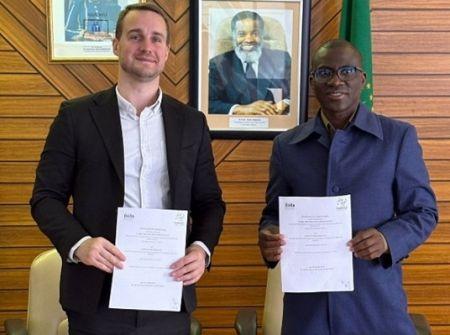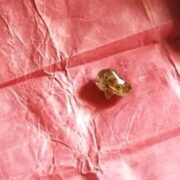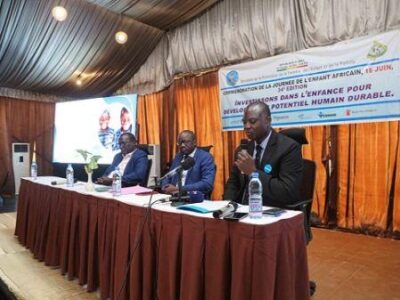
- Namibia signed an MoU with U.S. firm NANO Nuclear to boost uranium processing.
- The deal adds the U.S. to Namibia’s talks with China and Russia on nuclear cooperation.
- No formal nuclear agreements yet, but Namibia aims to build its first plant.
Namibia’s Industrial Development Agency (NIDA) signed a memorandum of understanding with U.S.-based NANO Nuclear Energy on Friday, June 20. The agreement aims to “significantly enhance” Namibia’s uranium resources. This initiative positions the United States alongside Russia and China as potential partners in Namibia’s ambitions for local yellowcake processing.
Namibia, Africa’s leading uranium producer, supplies 10% of the global market. The country is intensifying efforts to add value to this critical resource. Earlier in January, former Namibian President Hage Geingob reiterated this vision to Chinese Foreign Minister Wang Yi. A similar approach was adopted by the new President, Netumbo Nandi-Ndaitwah, during her meeting with Russian Deputy Prime Minister Yury Trutnev. President Nandi-Ndaitwah specifically raised the idea of a nuclear partnership with Russia, particularly for the beneficiation of Namibia’s natural resources.
The country’s outreach to these three nuclear powers is strategically significant. China, the largest foreign investor in Namibia’s uranium mining industry, with interests in the Rossing and Husab mines, is also actively investing in its own nuclear power development. According to the International Energy Agency (IEA), China alone hosted half of the 63 nuclear reactors under construction worldwide at the end of 2024. Russia is another major player in the nuclear industry, controlling approximately 44% of global uranium enrichment capacity. Rosatom, the Russian national nuclear company, is also active in Namibia, where its subsidiary Uranium One is developing the Wings project. Finally, Washington seeks to diversify its uranium supply sources and reduce its dependence on Russian enriched uranium by 2028, making this type of partnership potentially beneficial for the U.S. as well.
NANO Nuclear Energy, for its part, views the memorandum of understanding with NIDA as a milestone in its strategy to “power the future of nuclear energy in the United States.” It is important to note, however, that none of these discussed initiatives have yet translated into formal commitments between Namibia and these potential partners. NIDA and NANO Nuclear Energy intend to continue negotiations toward a definitive agreement. It remains unclear whether similar discussions are already underway with Russia and China. Regardless, the stakes are high for Namibia, which aims not only to add value to its uranium but also to construct its first nuclear power plant.









Comments